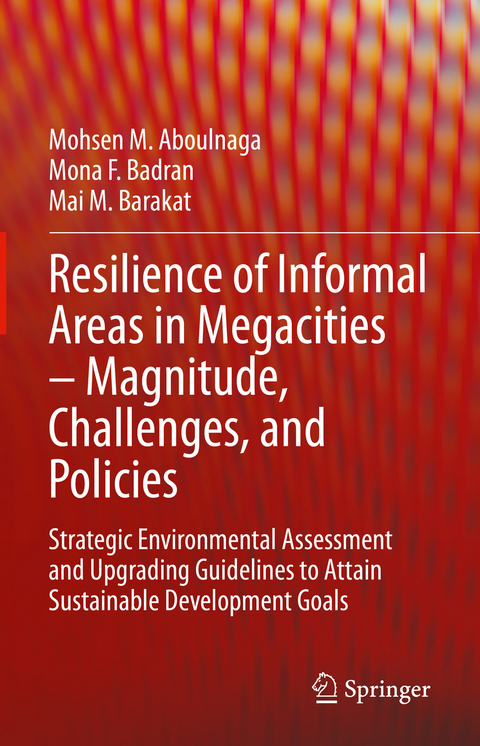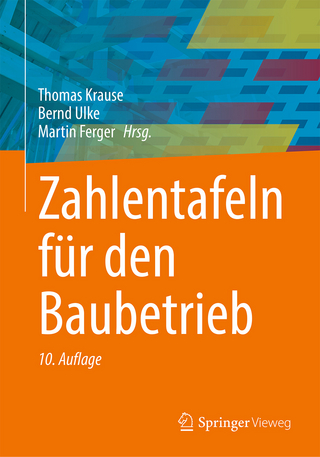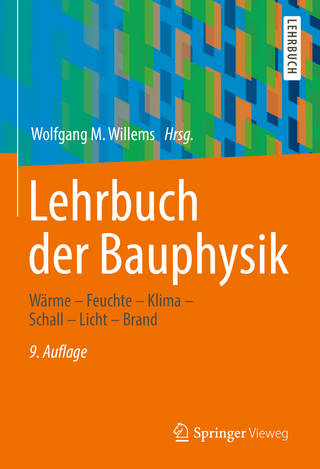
Resilience of Informal Areas in Megacities – Magnitude, Challenges, and Policies
Springer International Publishing (Verlag)
978-3-030-87793-4 (ISBN)
This book focuses on the socio-economic and sustainability challenges facing megacities in dealing with the dramatic population increases of informal areas and settlements (or slums), especially when coupled with the impacts and risks of climate change. The authors examine informal urban areas globally and in developing countries utilizing strategic environmental assessment (SEA) as a tool to solve the sequence of upgrading steps concerning slums and shanty towns, and also establish essential guidelines for local governments and stakeholders to create a balance and quality of life for slums dwellers, particularly in the age of the COVID-19 pandemic, through applying sustainability indicators that enhance the upgrading process. Coverage includes recent statistics and mapping of informal areas worldwide and assessment of the GIZ and Sir Norman Foster models in terms of energy demands and consequential emission of CO2 and air pollution from slums. Three models of Maspero's Triangle arealso studied and assessed. The book is essential reading for a wide range of researchers, students, policymakers, governments, and professionals as well as a good source for research centers and academicians working in energy, climate change, urban environments, and sustainable urban development.
lt;b>Prof. Dr. Mohsen Aboulnaga is a Professor of Sustainable Built Environments at the Faculty of Engineering at Cairo University, Egypt. He has more than thirty-five years of experience working in higher education, government, senior management, and consultancy on the issues of sustainable cities, climate change adaptation, sustainable development, sustainable energy, and energy policy development. Professor Aboulnaga is a senior expert on sustainable urban development, including green and smart cities, energy efficiency, and green building. His areas of competency encompass sustainable development, strategy planning, policy development, low-carbon society, sustainable energy, and climate change. Other areas of expertise include executive capacity building for local governments and coaching and training on strategic planning and leadership, Sustainable Development Goals (SDGs), innovation, and urban farming in cities. Professor Aboulnaga has developed many Concept Notes for leading international entities such as ENI ZOHR Sustainability initiative (2019), European Union (EU) funded projects (2018-2019) and Sustainable Urban Development for The Union for the Mediterranean (UfM) in 2017. Recently, Professor Aboulnaga organized with Technical University of Lisbon, Portugal, and University of Florence, Italy, the international design competition "HOME-KIT Sustainable Modular Houses for Slum Dwellers amidst COVID-19", which was concluded in July 2021 in Lisbon. Professor Aboulnaga is an author of four books published by Springer and 28 chapters in books published by Springer and Elsevier. He has also been invited keynote speaker and speaker to more than 390 international and regional conferences, seminars, workshops, and training programs, and has more than 170 international publications and presentations.
Prof. Mona Farid Badran is a Digital Economy Professor at the Faculty of Economics and Political Science, Cairo University, Egypt, and a Digital Economy Expert at the World Bank, Washington DC, USA. Professor Badran holds a Ph.D. from Cairo University, and a Master's degree in Economics from Georgia State University, Atlanta, Georgia, USA. Prof. Badran published extensively on topics related to the ICT sector in emerging markets and Arab countries such as digital inclusion, local loop unbundling, fixed and mobile broadband, socio-economic dynamics in the uptake of ICT, cloud computing, data localization, e-and m-health, mobile money services, and digital economy and digital platforms. Her research topics focus primarily on the socioeconomic impact of ICT in developing countries, particularly on marginalized cohorts such as youth and women. She also has extensive consulting experience with the public sector, including an advisor to the Ministry of Investment in Egypt for more than 6 years, where she leads the research department. In addition to her consultation for government, Professor Badran has extensive consulting experience with the private sector such as Orange Mobile Operator, telecom industry bodies such as GSMA, and international organizations such as the ILO and the ITU. Furthermore, she has an extensive track record in publishing in the best international journals in her domain such as the Telecommunications Policy journal. Professor Badran's current research interests are about the impact of new disruptive technologies such as AI and digital platforms on economic growth and development in emerging markets. Professor Badran received numerous international awards for her international publications record and her academic achievements from Cairo University, Georgia State University, and the International Telecommunications Society.
Mai Barakat is an Architect with more than seven years of experience in academia, sustainable urban development, and climate change. Mrs. Barakat has been a Lecturer and Research Assist
Global informal settlements and urban slums in cities and the coverage.- Comprehension of informal settlements: An outlook on sprawl factors, challenges, and upgrading process - Role of policies for slums' resilience and governance.- Informal urban settlements and slums' upgrading - Global case studies.- Sustainable development principles for upgrading informal urban areas - Sustainability assessment of selected models.- Understanding the challenges and potentials of people living in slums - Developing Countries.- Assessment of one of the slum areas in developing countries: Maspero's Triangle - Cairo as a case study.- New Proposed Models for Maspero's Triangle - Assessment.- Informal settlements and urban slums' upgrading in megacities - Conclusions and recommendations.
| Erscheinungsdatum | 18.12.2021 |
|---|---|
| Zusatzinfo | XLI, 327 p. 261 illus. in color. |
| Verlagsort | Cham |
| Sprache | englisch |
| Maße | 155 x 235 mm |
| Gewicht | 744 g |
| Themenwelt | Technik ► Architektur |
| Technik ► Elektrotechnik / Energietechnik | |
| Schlagworte | climate change • Energy • GIZ • GZI • Informal areas • Maspero Triangle Assessment • Megacities • Norman Foster • Slums • Strategic Environmental Assessment (SEA) • sustainable development • Sustainable development goals (SDG) • Sustainable Development Indicators (SDI) • Urban Development • urban geography and urbanism • Urban Resilience |
| ISBN-10 | 3-030-87793-0 / 3030877930 |
| ISBN-13 | 978-3-030-87793-4 / 9783030877934 |
| Zustand | Neuware |
| Haben Sie eine Frage zum Produkt? |
aus dem Bereich


